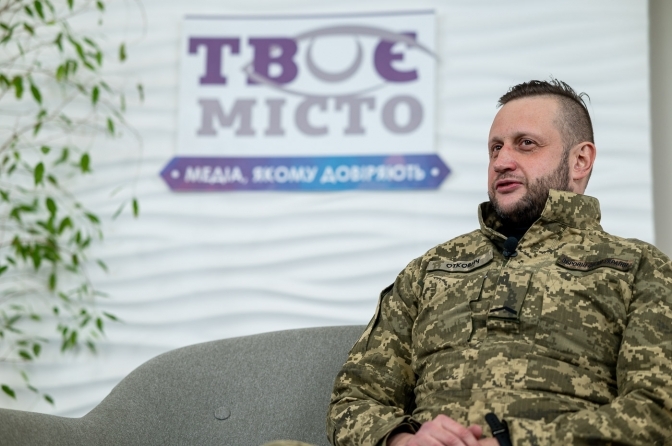
[For daily insights from throughout Ukraine, follow Ukrainian Freedom News on Telegram]
Lviv Now asked Myroslav Otkovych what has already started to change about the conditions of treatment for the military, why the ombudsman was interested in the situation, whether a summons can be issued as a punishment, and why there is more life in the vanguard than in the rear.
Myroslav, you are currently undergoing the recovery in Lviv, and your story is now on everyone’s lips. You saw people in line who, after being injured, have to take a bunch of medical certificates. This is not the first time I’ve heard about a terrible bureaucracy in this field. Many guys say that the scary thing is not to spend time in the hispital with an injury, but the number of queues you have to endure to get back to the unit. Why is everything so complicated?
Such a problem really exists, I faced it myself. Compared to other boys, I passed this procedure quite easily – in five hours. I had a knee operation, and after that, I was automatically given 30 days, and there is only one surgeon. But there are eight doctors in the military medical commission, and to pass them, people stand in lines for 21 days. Yes, I received this piece of paper. But I looked at the boys and realized that I couldn’t leave it like that, and I had to use my story to tell about them. When people stand in line without lower limbs, it infuriates me, I have to talk about it!
We are talking about people who suffered injuries. This is no longer the story that they want to take you to the army and you have to stand through many queues to be thoroughly checked to see if you are suitable for it.
This is paradoxical! A person immediately after surgery is still recovering from anesthesia, intoxication of the body... This happened to me – they did spinal anesthesia, and I didn’t feel quite well. And then, when a person has to recover, lie on a bed under a drip, he is forced to immediately go for a certificate. On what basis is he to be recovered? A piece of paper is needed. You are in a bad physical condition, there is no way to drink water, measure your blood pressure, no one will give you any pills if you suddenly get worse. I am not talking about the fact that there should be a person who will simply communicate with you. People have experienced various stresses. It is not necessary to lose a limb, after a concussion or from all these medications, anything can happen in your head... There should be people who communicate, help orientate, at least, and give the opportunity to fit in this public space. All this did not happen.
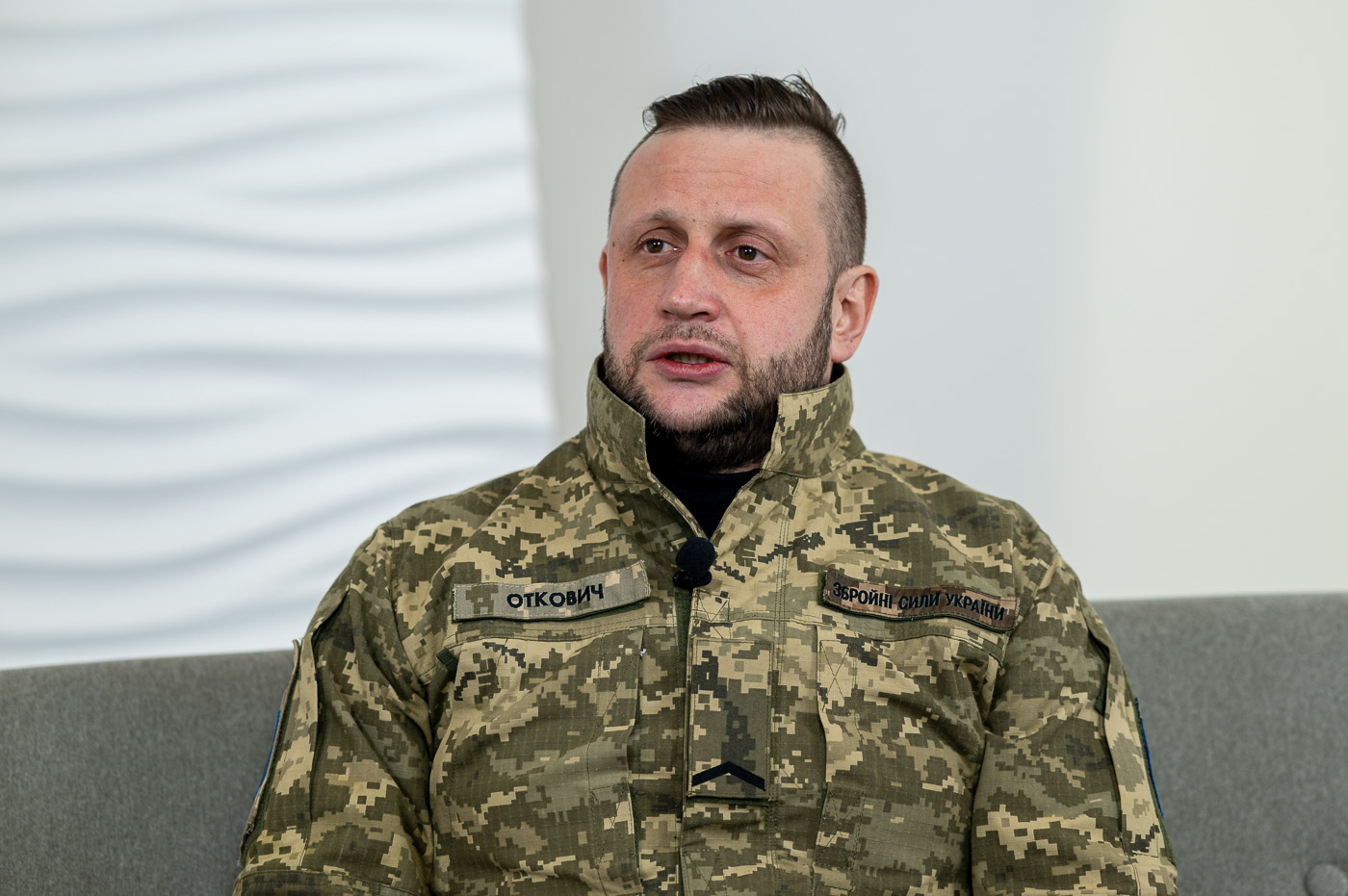
Do you know how this system can be made better from the inside?
Of course. There are two directions. The first one is strategic: the transfer of document flow to the «digital» so that the entire military medical commission is in «Diia» [Ukraine’s e-governance resource]. Deputy Prime Minister Fedorov has already spoken that work on it is already underway. There should be a digital queue, so that people do not stand near the premises two hours before the opening of the clinic, but clearly know at what time they should come, and that the doctor will see them. Perhaps we’d have to wait, but to do it in a unit, at home or in a hospital, and not under the walls or near the office door.
The second direction is a practical one, which I am currently working on: to get volunteers to this specific Lviv medical center of the Armed Forces of Ukraine. The good news is that it happened already today. We broke through that wall – whether it was pride or unwillingness to change something. Because I immediately declared: there are people who are ready to help, but they are simply not allowed there. They were let in today. The [hospital staff] brought water themselves, even before our volunteers arrived. Now, volunteers are forming a group of psychologists who will work with wounded soldiers standing in lines. Medical students are already sitting with blood pressure monitors. The volunteers told me that in 15 minutes, three people came up with a request to measure blood pressure. That’s not fiction, but a real need. And it really works on a specific example, in a specific clinic, which can be scaled to the whole country, where there are the same clinics, problems, and the same volunteer centers. So that they confidently come in and do their work. The institution’s administration has no right to refuse them, because the ombudsman recorded the proper observance of human rights and the rights of military personnel, after he had come to this clinic at my request and personally evidenced the facts of human rights violations.
That is, you turned to the ombudsman himself, and he reacted in this way?
The ombudsman saw my post on Facebook. We talked, agreed, and the Lviv representative office of the ombudsman came and recorded all these things. This is an officially recorded violation of the rights of servicemen, not my fiction or something else.
This goes back to the idea that the army is a rather closed, bureaucratized structure. And, probably, it can’t be otherwise, because there must be discipline in the army. At least, that’s how I imagine it, althoug perhaps, it’s wrong and it looks different from the inside.
How to keep some healthy balance here? Maybe business managers should reform logistics stories. We know that NATO has much more logistics in its standards than, conventionally speaking, what caliber of ammunition you have.
If we talk about logistics in general, or the medical field?
In general, about how the system is built.
Management is the foundation, sure. What happened at the beginning of the war? Territorial Defense Forces were formed – civilians who were mostly not engaged in the army. Many of them have higher education, managerial knowledge and skills.
The minus is that they did not fight and do not know how to do it. But there are also advantages.
This minus existed at the beginning of the war. Now, everyone has already fought, and only the plus remains. We’re taking a fresh look at army statutes and all that stuff. At the beginning of the struggle to allow volunteers to enter [the military], I felt being devalued. They asked: «How long have you been in the army – 10 months or 11?», because I have been there since February 24...
I say: «Yes. And this is my advantage. I don’t want to eat these «Soviet soup» that you offer me. I see how it should be, and let it be better my way than yours.» Because they perceive reality inadequately, they are already «boiled» in this, and they are no longer interesting to society or anyone. All this must be reformed.
Muscovites, or Russians if you wish, have an institute of voyenkors [war reporters]. These are some military bloggers who run around somewhere in bulletproof vests or with weapons and make reports for various Telegram channels. I understand that, on the one hand, this is their way of giving messages that cannot be given by official channels, part of propaganda. And from the other hand, perhaps it is something their, if not freedom of speech, then, at least, some pluralism of different groups that exist there.
When we talk about our situation, it sometimes seems that we have very few official channels. That is, there is a military serviceman, a journalist, who makes a post, because of which a lot of fuss emerges. And this brings us back to the question of whether there should be some kind of public control over the army during the war: parliamentary, or mass media. Because some things cannot be changed until they come to light.
There must be control. Of course, during war, there are certain restrictions on civil and political rights. And often it is justified, because military censorship in the media is necessary. Not because we (I mean the Armed Forces), do not trust you, the journalists, but because you may not know everything. And it may happen that out of carelessness, certain information will be made public, evoking interest of the special services of the aggressor state. Therefore, there should be censorship, it is normal, even foreign journalists who come here perceive it. And I am cooperating with many foreign media.
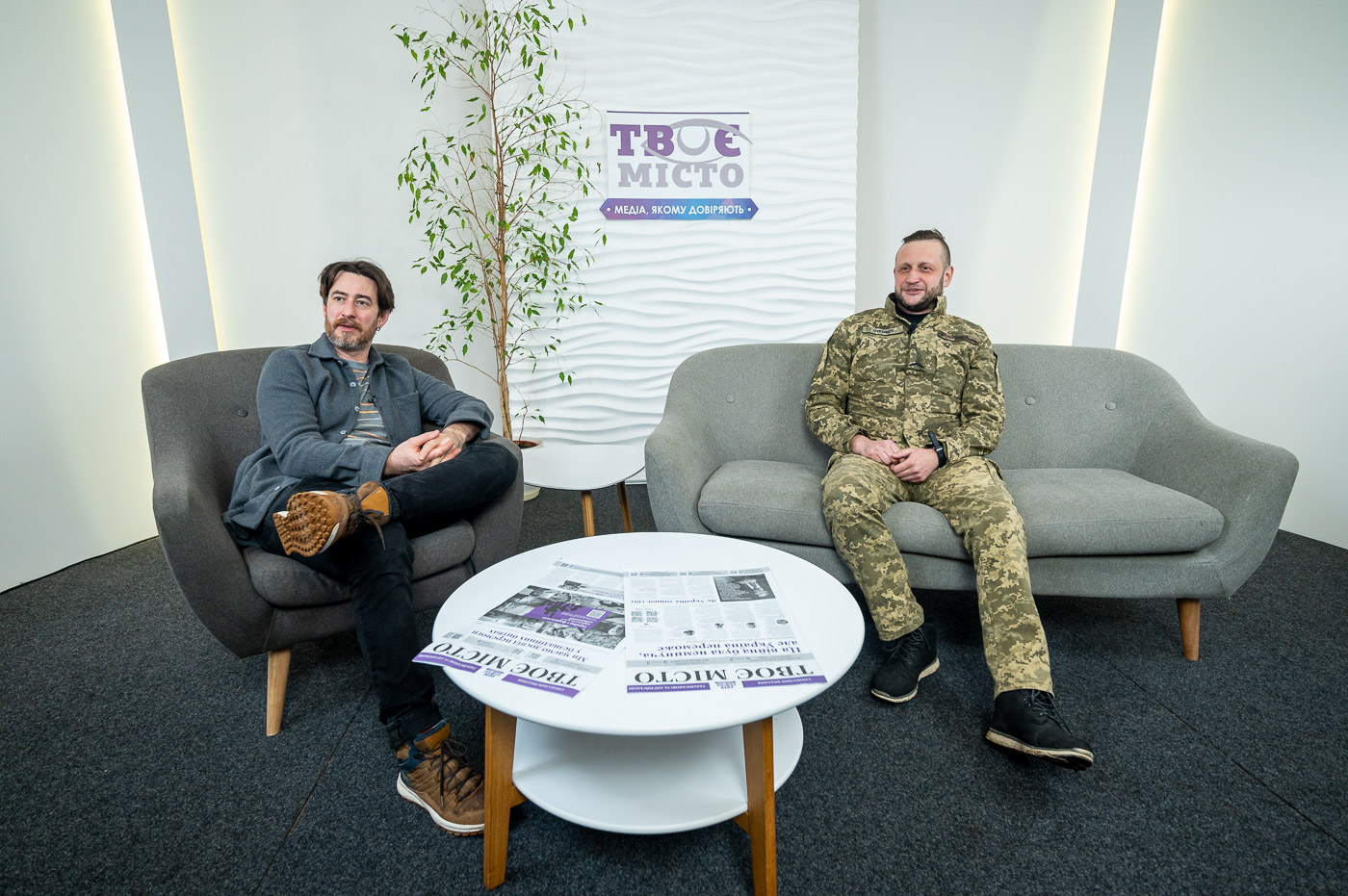
When it comes to prohibitions, in democratic countries and societies, it is very important that this is always an exclusive list. Like, this or this is not possible, but do everything that is not on the list.
There is no need to talk about the list. Specific content from a specific location may contain specific things.
I mean, what are the criteria: is censorship justified for you, and what, for example, is unjustified during a war? You were just «in my shoes» [as a journalist].
We must see that the report about the unit will not harm that unit. A journalist may not even know that he is releasing sensitive information.
That is, locations, the number of personnel…
Definitely. A specialist who will freeze-frame the video with a general location plan, may extract more information than necessary. You know that 80 per cent of the CIA’s intelligence comes from open sources. It is not necessary to work in the field for this. Therefore, all data from the front line must be censored.
If we consider control over the army – of course, it should be public, and not noisy, but constructive. This is the way to help. The task of the army is to allow where [the society] wants to assist, and not to refuse such help. The army must be transformed in this direction. Now there is an institute of press officers, introduced only at the level of large units – there is no such thing in battalions. And I think that they should be.
What should a press officer do at the battalion level, where there are a maximum of a thousand people?
At least communicating with the press and so on. At the brigade level, it’s one or two people, they just can’t handle these things.
No one cancelled public control during the war, but it must be constructive. In this case, I announced everything about it, and many voices sounded immediately: «Let’s protest or start firing someone!» That is, these are things that do not add constructiveness. I immediately refused, said that it should be done constructively, so that the boys would get these or those as soon as possible. And this formula works. Because if someone wants to use any dissatisfaction for political reasons, it is wrong. It already gives the aggressor state grounds to make its corrections and manipulate.
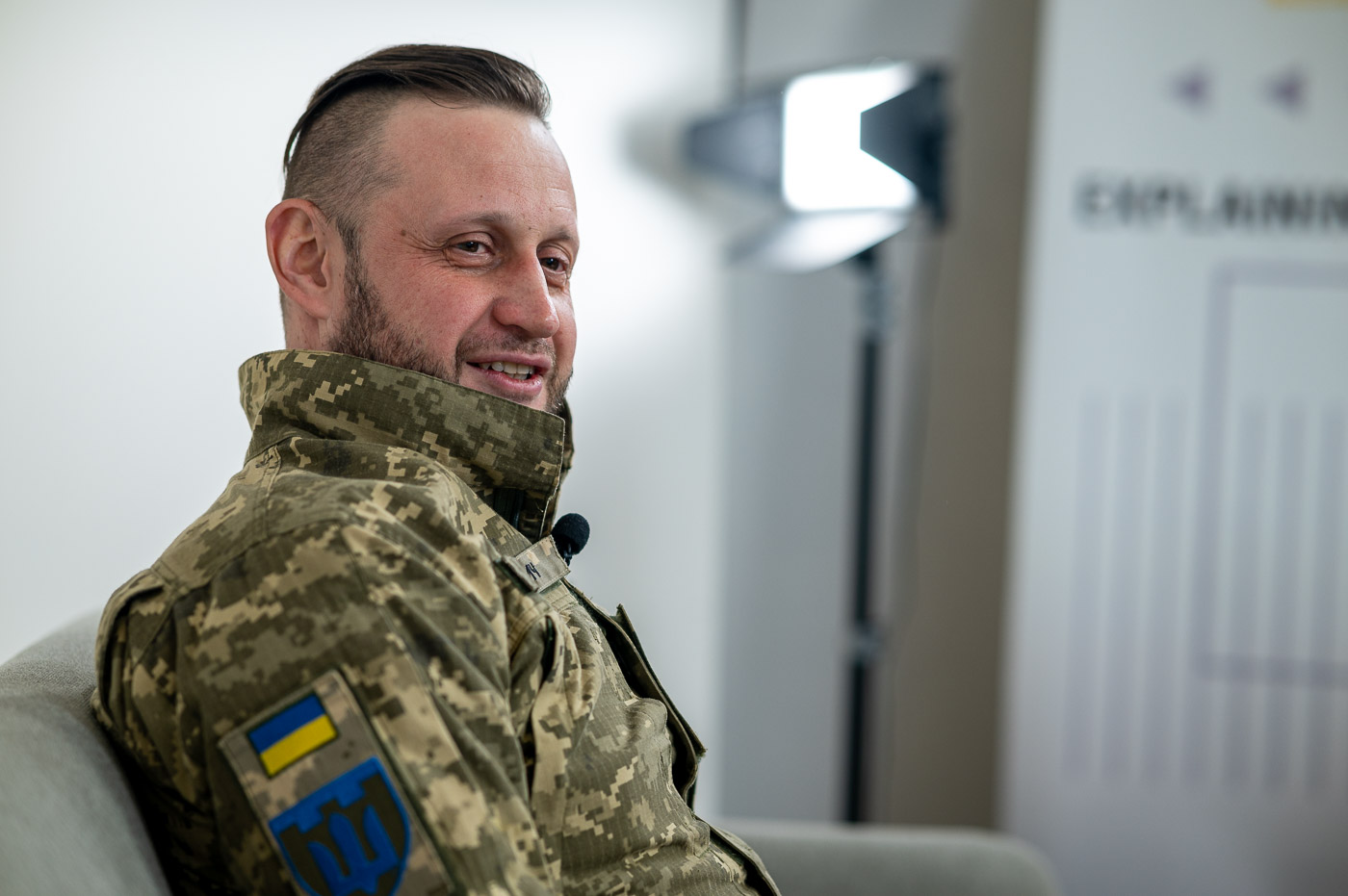
Now, the army is leading in the level of societal trust. This is the institution that Ukrainians trust the most – by 102 per cent, as it seems according to the latest data. I’m just kidding, but it’s almost like that. Is trust just as important in the army itself? And if so, what does it mean?
Trust between soldiers?
When we talk about censorship, for example, what about criticising someone from the region, district, city, or country government? Doesn’t it weaken our defensive capabilities, doesn’t it divide us?
We all understand that there must be unity, that it is very important, and Ukrainians are demonstrating it now. But on what grounds should it be built? There are two approaches. Canadian volunteer Ustya Stefanchuk was in our studio, and she said that sometimes, she sees a lot of crap of all kinds.
Crap can be critical, or it can be non-critical.
Read also: «This war exposes the truth about ourselves,» – Canadian volunteer Ustia Stefanchuk
Of course. But she says: «It doesn’t matter to me until we win. Until victory, my army is the best in the world, there are only angels with wings. Everyone. This is my position.» And you just understand that there are safety values, they are in the the priority.
But even in this story: you publish that there is a problem, draw attention to it... Doesn’t this undermine trust in army institutions? For example: «God, what do we have, a «Soviet» army?! What’s going on? Why do I transfer a hundred hryvnias to them every week?»
This is a question of priorities. My priority was to protect the rights of my brothers. And this is the highest priority. Because these brothers will soon find themselves on the front line again. And if they were deceived and offended here, can you imagine what thoughts they will fight with? This causes social tension. That is, I looked at it comprehensively, from a height. If it is necessary to think small, then yes – it is better to keep quiet, because it is a war. But if you look at a month, two, three ahead, then I did the right thing. Because later, the fact that something is wrong in the army would give such a negative feedback, that it would cover the negative from the current publicity tenfold.
Let’s put it this way: we already have about a million people in the armed forces. Simple arithmetic – and every tenth family has someone very close to them in the military.
I think every fifth.
Maybe so. And there is probably no such family that doesn’t have any acquaintance in the army. Anyway, everyone knows how and what, «word of mouth» or «kitchen» radio works. What you say is really very important: you can’t build trust on lies, that’s not how it works. There are restrictions on information, especially regarding purely military things. Where there is talk of how effectively or ineffectively the system works.
You know, it’s immediately clear for what purpose someone is doing what. If you have a goal to do specific things, you have to do them. And if you start «muddying the water» because you got up with a bad mood – then nobody needs it right now. As soon as the war is over and martial law is lifted, I am in favor of society taking back control of state institutions as efficiently as possible the next day. So that the next day after the victory, all political and civil rights were restored. Until then, we work to win. This is the price of war.
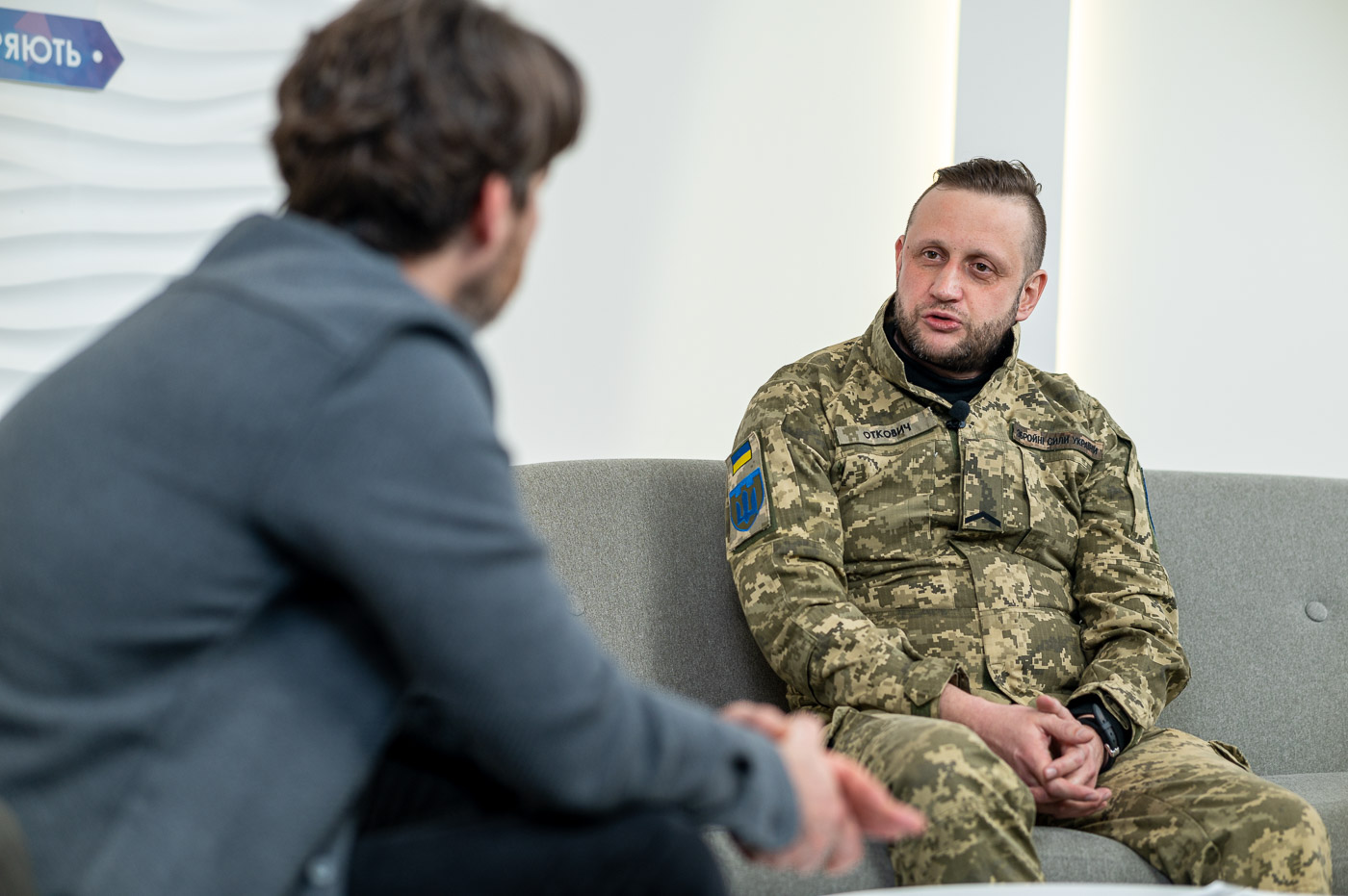
Myroslav, there’s another hot topic. Some boys from Ivano-Frankivsk developped a scheme to lure girls, drugged them, raped them and filmed it all. This absolutely terrible story has a strange continuation: information appeared that they had all been issued summonses and that they could be sent to the army, to the frontlines. It turns out that the summons is a punishment. What is this, a death sentence? How do you see this story?
Considering the summons as a punishment is a humiliation of the military status. Only civilians who avoid the army in every possible way can think like that.
Do you meet such punished people there?
You know, I fight in the 130th Territorial Defense Battalion of Kyiv, which was formed exclusively from volunteers. We have a very high level of responsibility. Top managers, business owners, people from the artistic sphere, journalists went there. We have a good model of the future Ukrainian professional army. We communicate in the same language because we chose it ourselves.
By the way, did you have any inclination towards the military?
I had no experience, and regarding a desire for the military... Well, not so much.
These people were top managers, IT workers, and others... They took up weapons, and after some time it turned out that they were completely professional soldiers.
You see, a person who has undergone an education has a methodology. And the methodology is a designer that gives an opportunity to find an effective approach to various spheres of life. Plus the question of responsibility. We simply transferred these civilian rails to the needs of wartime.
But, returning to those bastards: handing them summons is not an option. Their place is in prison. Prison as a correctional facility where they will serve their sentence. That is, those who make such statements are «burning» themselves and their distorted attitude to military service. Military service is an honor, duty and great responsibility.
But this is also the national duty of every conscript. Theoretically.
Yes. But whoever commits such crimes should be deprived of the right to serve in the Armed Forces of Ukraine, to fight for Ukraine. Because fighting for Ukraine is a privilege. At least that’s how I see it. Why should they have such a privilege? Their place is in prison.
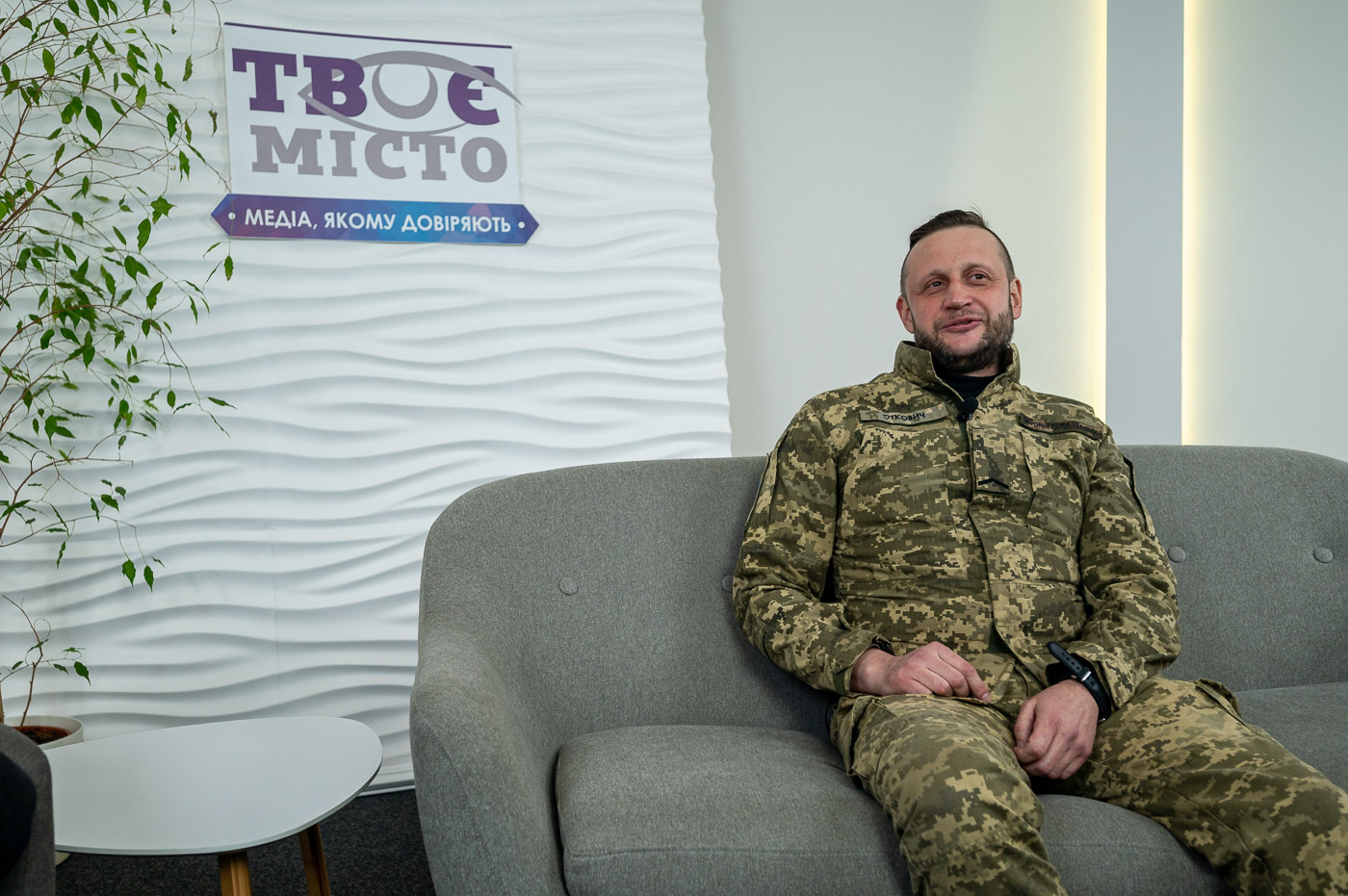
But even if we compare... The main driving force in the Russian army, at least in Donbas, for several months were the most declassified elements in their society – the convicts, the «Wagner» members. Relatively speaking, we have very different armies in terms of IQ. Does it affect the course of the war?
What is Putin doing? He kills two birds with one stone. He clears unnecessary contingent, which could sit in prisons and which must be maintained by spending budget funds, and at the same time has the opportunity to throw «cannon fodder» at the front line. From our side, unfortunately, the best and conscious people are dying, and they cannot be compared neither in outlook, nor as personalities with those on the other side. However, the Russians have a double advantage: they get rid of «garbage» and have the opportunity to constantly attack. And this inhuman resource that they are throwing away will not run out very soon. Today, I was asked to comment on the information, and I refused, because I did not know about it: in Donetsk, there is currently a very large epidemic of infectious diseases among the «Wagner» mercenaries due to unsanitary conditions and other everyday issues.
Venereal diseases, I read, in particular...
Perhaps sexually transmitted diseases. Infectious ones are especially dangerous. As they say – well, go ahead!
It’s almost like Tolkien, with elves on one side, and consumables molded from the swamp – on the other, of which there are a lot. It will soon be a year since you have been at war. What is her interim total for you now?
This is a difficult question. It should probably be divided into some categories.
The end of this war is in sight, can you imagine it?
Of course, it is imagined as a victory. But I don’t know if I’m ready to sum up. Many people summed up the results of the year on New Year’s Eve. For me, calendars shifted, dates, numbers, and days merged into one. Fragmented into certain individual days that I will never forget in my life. So, I am not ready to summarize when the struggle is ongoing, when the process is not yet complete.
Of course, this war changed us, and it radically changed me. The main thing is that these circumstances do not break us. If you can not «melt», then you can fight on. Therefore, it is necessary to fight inspiredly, but not irresponsibly. War teaches you to follow orders and stay alive. At the same time, it teaches straightforwardness. You discard all the nuances that were in civilian life, and it becomes easier for you to live. I am no longer interested in many things, I have forgotten about them. Before, I could worry they could spoil my mood, but now I just laugh about it all, because it doesn’t matter. The main thing is not to be afraid, because fear binds actions, binds a person, and he stops living. Anyone who wants to live fully must reject fear. And no matter how strange it sounds, there is much more life on the front lines than in the rear. Although there are coffee shops, music and so on. But believe me, it’s much more fun, easier, lighter, and simply more joy there.
Andrii Saichuk spoke
Text: Marichka Ilyina, translated by Vitalii Holich
Full or partial republication of the text without the written consent of the editors is prohibited and considered a violation of copyright.
Follow us on Facebook and Instagram. Lviv Now is an English-language website for Lviv, Ukraine’s «tech-friendly cultural hub.» It is produced by Tvoe Misto («Your City») media-hub, which also hosts regular problem-solving public forums to benefit the city and its people.









